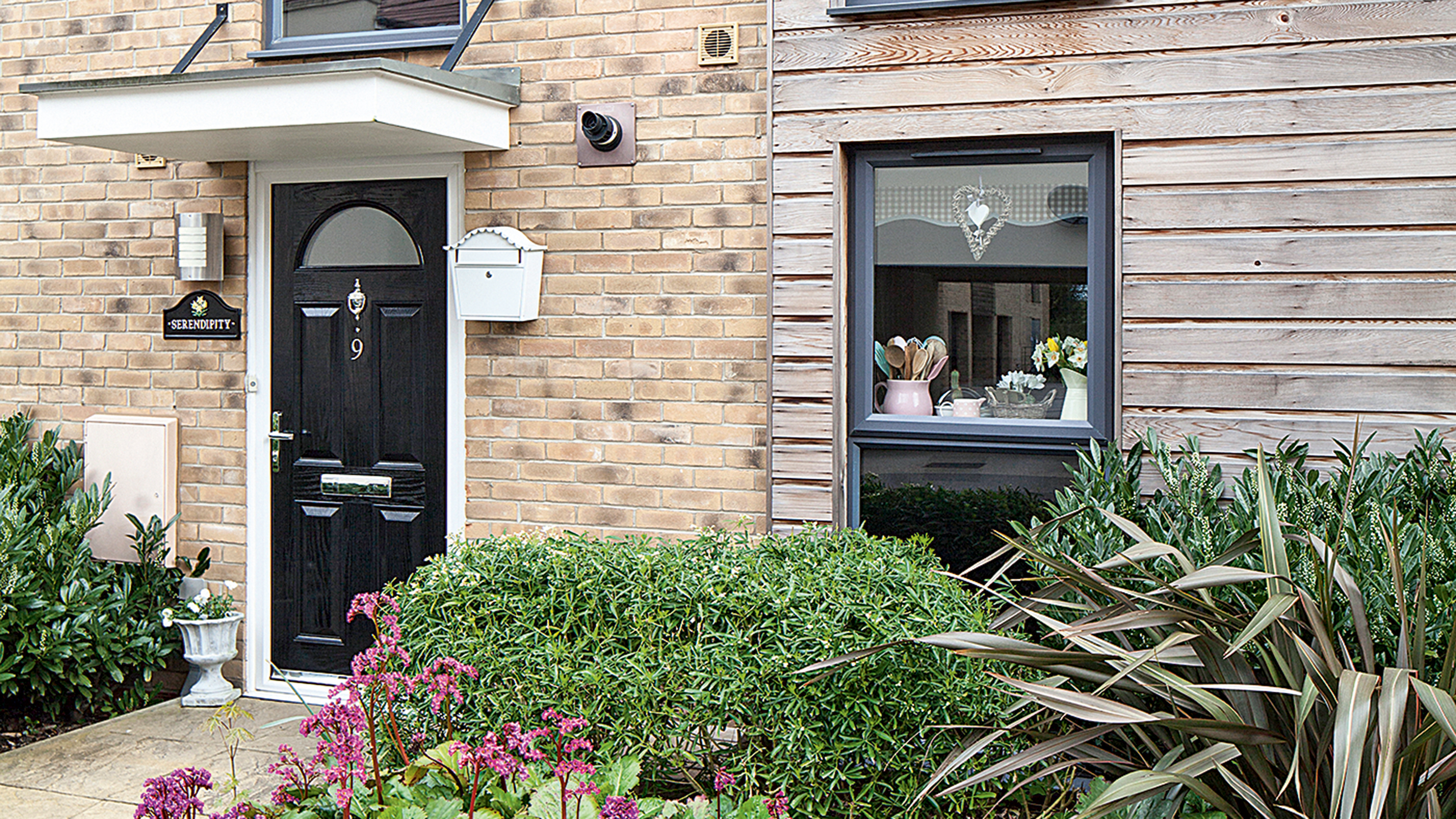Should I fix my mortgage and how long should I fix for?
We speak to the experts to find out whether you should fix your mortgage and how long for as well as the impact further interest changes could have on your decision

If you're not sure whether you should fix your mortgage, you're not alone. After all, it’s been a nail-biting experience for anyone trying to buy a property or remortgage their home loan over the last few months.
June 2023 marked another round of sharp and frequent increases in mortgage rates as inflation remained higher than expected. This prompted the Bank of England to continue with its base rate hikes and sparked forecasts, at the time, that the base rate could peak as high as 5.75%. It currently stands at 5.25% after 14 consecutive rises.
And the Bank’s actions have had a significant impact on mortgage rates. Between 22 June and 4 August, the average two-year fixed rate rose from 5.49% to 6.85%, according to financial data experts Moneyfacts, as mortgage lenders factored in the possibility of even more base rate rises.
So that begs the question, is now the right time to lock in a fixed rate before they climb even higher? Or, like last October when rates spiked following the mini-budget but fell back slightly in February and March, is it better to hold tight and hope the cost of borrowing with fall? We’ve asked mortgage experts to share their views.
Should I fix my mortgage?

Whether you should fix your mortgage or not will depend on your specific circumstances (and it's a good idea to discuss it with a mortgage broker).
However, the main advantage of fixing your rate is that you’ll know exactly how much your monthly mortgage payment will be for a fixed number of years, and it could protect you from further interest rate hikes. But if rates fall, you will be stuck paying a higher rate for the duration of your fix.
It’s understandable that borrowers are unsure about locking into a rate of around 6.5% for the next two to five years considering just 12 months ago rates were at least half that.
Get the Ideal Home Newsletter
Sign up to our newsletter for style and decor inspiration, house makeovers, project advice and more.
Adding to the confusion is that since the beginning of August, despite an increase in the base rate once again, some of the biggest mortgage lenders including NatWest and HSBC began cutting rates.
Chris Sykes, technical director at mortgage broker Private Finance, explains that the current base rate is not the only factor that influences the cost of mortgages.
"Banks buy money from the financial markets to lend out to their borrowers. The rate at which they purchase this money is called a swap rate. The main factor affecting the cost of swap rates isn’t the level of the base rate now, but the financial market’s expectations of where the base rate will be over the next few years."
He added: “Over the last few weeks we have had some positive news in the form of US and UK inflation figures which have fallen. That means even though the base rate went up again in August, swap rates have gone down because there is now an expectation that the future base rate may not peak as high expected. Some lenders have cut rates because of this.”
What if rates change?
If you choose a fixed rate and rates fall in the near future you will not benefit from the reduction in borrowing costs. You will be tied to that rate for its duration or face an early repayment charge if you leave before the deal expires.
If rates rise, you will be shielded from the increase in borrowing costs until the term of your fixed rate expires.
You can switch to a cheaper rate if mortgage rates fall before you have completed your purchase or remortgage. Ask you mortgage broker to check if your lender’s rates have gone down since you applied.
Chris Sykes adds: “We get in touch with borrowers coming up to a remortgage six months early. We lock into a rate and then if things change we switch them to a better deal nearer the time.
“In the most cases, you are not bound by the lender’s mortgage offer until you complete your purchase (which means you’re ready to move in) or when you finalise your remortgage and the new rate has begun.”

What to consider before fixing your mortgage
“Borrowers who like to insulate themselves against turbulence in the market and like to budget around a set monthly figure often prefer fixed rates,” adds Chris Sykes. “Now more than ever this is a widespread priority.”
Other borrowers, who can withstand payment increases if rates do rise, are opting for tracker or discount variable rates, because they expect the base rate and mortgage rates to fall faster than some economists are predicting and are willing to take that gamble.”
Before fixing your rate, consider what your plans will be over the coming years. The shortest time you can fix a rate is two years. If you plan to move home or raise extra finance within two years will incur an exit penalty to switch mortgages.
If you’re unsure of your plans in the next two years, ask your mortgage broker to find a remortgage deal or first-time buyer mortgage that has no early repayment penalties. This is likely to be a variable rate, either a tracker mortgage or a discounted mortgage. Although these rates may be cheaper now, if the base rate increases again, they will soon rise.
How long should I fix my mortgage for?

You can commonly fix your mortgage for two, five or 10 years. Occasionally lenders introduce three, seven and even 40-year fixes but these are rare. But it's important you speak to a mortgage broker or your lender for specific advice on how long you should fix for, or even if you should fix at all.
Pros and cons of a short fixed rates
A short fixed rate is considered anything less than five years. If mortgage rates fall soon, you’ll benefit from being able to remortgage to lower rate in just two years. If you opt for a five-year deal, you’ll be tied to a high rate for a further three years.
The downside of a short-term fixed rate is that if rates rise considerably in that period you’ll soon be facing another payment hike.
You’ll also face another package of remortgage costs two years from now.
Pros and cons of longer-term fixes
Opting for a five-year rate is a good way to insulate yourself from a volatile market in the longer term. Selecting a five-year fix can also be a good option for borrowers buying at high loan to value, such as 95% or 90% who are worried about ending up in negative equity in a year or two. A five-year term gives their house price chance to recover.
Fixing for a longer term also means no re-transaction costs in two years’ time.
However, if rates fall in the next two years you will be tied to a higher rate for longer.
When will mortgage rates go down?

Zoopla expects mortgage rates to peak over the summer. According to Moneyfacts, the average two and five year rates are 6.83% and 6.33% respectively. Rates began to marginally reduce in August.
Mortgage rates are expected to fall from their current highs but not to the levels we’ve been used to since the aftermath of the financial crisis.
MoneySavingExpert founder Martin Lewis points that during the last 15 years borrowers have lived through an ‘anomaly time’ where interest rates have been ‘limbo-ing well below the prior 300-year historic lows’. There is no rule to say that those low rates will return.
According to Zoopla’s analysis, mortgage rates could fall below 5% later this year for borrowers with a 25% deposit or more, but its adds that the decline will be slow.
Home buyers and mortgagees should expect mortgage rates to remain between 4 and 5% for some time to come after we get over the recent surge in rates.
Jane King, mortgage and equity release adviser, Ash-Ridge Private Finance, added: “We have to accept that previous ultra-low interest rates were within an artificial environment and that we are unlikely to see these again. Borrowers will have to get used to higher rates and the feeling among economists at the moment is that bank base rate will settle around the 5% mark.”
Samantha Partington is a personal finance journalist specialising in mortgages and the property market.
Over the past nine years, Samantha has worked for the Daily Mail, trade website Mortgage Solutions and business title Property Week. She regularly writes for national money pages including Money Mail and Sun Money and supports prop tech firms with content writing.
-
 Should your front door colour match your hallway? Interior experts reveal 3 reasons why it should (and 3 reasons it shouldn't)
Should your front door colour match your hallway? Interior experts reveal 3 reasons why it should (and 3 reasons it shouldn't)Are you team matching or contrasting?
By Ellis Cochrane
-
 This £200 limited-time discount makes this Dyson vacuum cheaper than I’ve ever seen it - run don’t walk to Argos for this bargain
This £200 limited-time discount makes this Dyson vacuum cheaper than I’ve ever seen it - run don’t walk to Argos for this bargainIt's the most affordable Dyson on the market right now
By Lauren Bradbury
-
 Martin and Shirlie Kemp’s pastel flower beds has given their Victorian renovation a romantic look - how you can get the look
Martin and Shirlie Kemp’s pastel flower beds has given their Victorian renovation a romantic look - how you can get the lookTheir pastel garden is the cottage garden inspo you've been looking for
By Kezia Reynolds
-
 You can claim back over £300 a year from HMRC if you work from home - here’s how to check if you’re eligible
You can claim back over £300 a year from HMRC if you work from home - here’s how to check if you’re eligibleWhen it comes to saving, every little helps
By Kezia Reynolds
-
 Experts have revealed the best day to renew your home insurance policy - you’ll want to do it sooner rather than later
Experts have revealed the best day to renew your home insurance policy - you’ll want to do it sooner rather than laterDon't leave this task at the bottom of your to do list
By Kezia Reynolds
-
 Is a variable rate mortgage ever a good idea? Experts weigh in
Is a variable rate mortgage ever a good idea? Experts weigh inOur money expert explains what a variable rate mortgage is, who they can be good for, and the pros and cons of this kind of mortgage
By Samantha Partington
-
 I’m a first-time buyer, what are my chances of getting a mortgage right now?
I’m a first-time buyer, what are my chances of getting a mortgage right now?And what you can do to increase your odds
By Rachel Wait
-
 Should you ever pay above the asking price for a home?
Should you ever pay above the asking price for a home?Our money expert explains whether you should ever pay over the asking price for a home, especially if house prices fall as predicted
By Samantha Partington
-
 We put your mortgage questions to two leading experts, here's what they said
We put your mortgage questions to two leading experts, here's what they saidAs mortgage panic continues, we've answered the most common questions - from when mortgage rates will come down, to when you actually have to pay stamp duty
By Samantha Partington
-
 'My mortgage is set to skyrocket - what should I do?' 5 potential solutions from a money expert
'My mortgage is set to skyrocket - what should I do?' 5 potential solutions from a money expertIf you're facing higher mortgage costs, our money expert explains various courses of action you could take to ease the pressure
By Samantha Partington
-
 What to do if your property transaction falls through - a step-by-step guide
What to do if your property transaction falls through - a step-by-step guideDepending on the point in the sale process where the transaction falls though, there are different actions you can take, as our money expert explains
By Samantha Partington